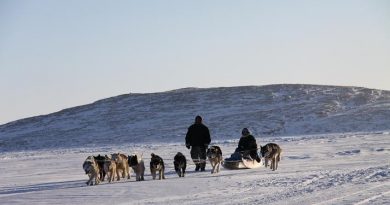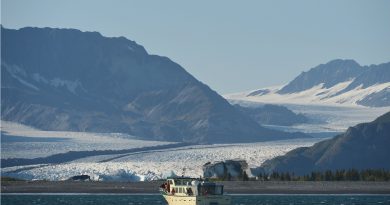The forgotten provincial North
Global warming and a commodities boom have resulted, in the past several years, to a lot of attention being devoted to the Canadian Arctic. Our Prime Minister makes an annual visit to the Arctic, our Coast Guard is preparing for an increase in shipping traffic in the North, and circumpolar relations have become a hot topic in Canadian foreign policy. For the most part this is welcome attention, as it spurs thinking and action on how to improve the quality of life in this cultural and resource-rich land.
However, amidst the fanfare, the provincial North has lingered. Marginalized within both the federal and provincial systems, the estimated 1.4 million Canadians who live in the provincial norths – from Prince George to The Pas to Labrador City – have nary a voice, let alone a common agenda.
How do we define The North? For the most part, the three territories and their 100,000 inhabitants are considered to be the Canadian North. Exceptions have been made for the Inuit who live in northern Quebec (Nunavik) and Labrador (Nunatsiavut). But those who happen to live below the 60th parallel are removed from the list of stakeholders. They do not fit conveniently into either the northern Canadian or circumpolar paradigm, yet inevitably consider themselves to be northerners and face all the same issues we associate with the North.
A more generous definition comes from an international organization composed of sub-national and regional governments called the Northern Forum. There, what distinguishes the north are extreme climactic conditions; a reliance on commodities and their boom-bust cycles; remoteness from large urban centres; high infrastructure costs; and a relatively large indigenous population. Geographically, this North typically lies within boreal, taiga and tundra areas. Members of the Northern Forum include states, provinces, territories and regions from Canada, United States, Russia, Finland, Japan, Korea and China; the idea is to share ideas and come up with best practices to deal with common challenges. While this has worked moderately well at the international level, incredibly, provincial norths in Canada have no such mechanism or forum by which to do this, stuck as they are in their jurisdictional silos.
Part of the problem is that no one person or organization can claim to represent any one of the provincial norths, let alone all of them together. Provincial premiers are inevitable mired in southern politics, where the legislatures, voters and media are. The result is a leadership vacuum. Without northern provincial leadership, its inhabitants are unlikely to get the resources, attention and thinking that is required to overcome the many challenges, and take advantage of the many opportunities, that exist in the provincial norths. And the opportunities are many. Unusual among developed countries, Canada’s economy is still very reliant on the primary sector (natural resources). The forestry, oil and gas, hydroelectric, and mining industries are all predominately located in the provincial norths. (With the exception of the recent diamond mining in NWT, first-class ore deposits in the territories are undeveloped.) Think of Alberta’s tar sands, BC’s logging, Ontario’s mining and Quebec’s hydroelectric generation. The engines of Canada’s economy are found in the northern regions of our provinces, yet nobody seems to have the faintest idea about them beyond summer weekends to the cottage.
How many people are there in the provincial Norths? How many of them are aboriginal and Metis? What is their combined GDP? How healthy is the population? How well are they governed? How well are they educated? How can their quality of life be enhanced? How can their economic potential be enhanced? What can they learn from each other?
It’s way past time to start asking these questions – it’s time to find some answers.



